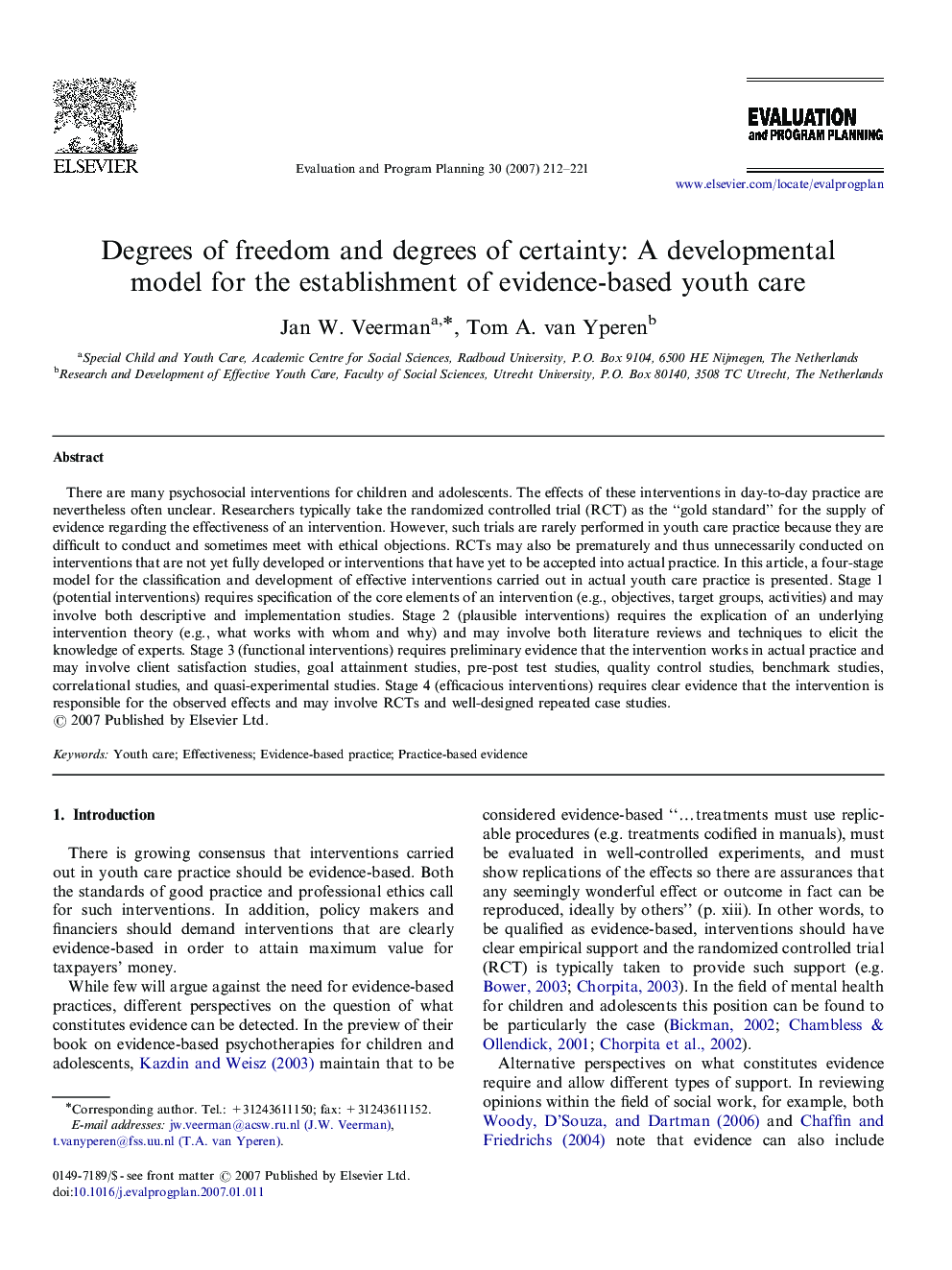| Article ID | Journal | Published Year | Pages | File Type |
|---|---|---|---|---|
| 322411 | Evaluation and Program Planning | 2007 | 10 Pages |
There are many psychosocial interventions for children and adolescents. The effects of these interventions in day-to-day practice are nevertheless often unclear. Researchers typically take the randomized controlled trial (RCT) as the “gold standard” for the supply of evidence regarding the effectiveness of an intervention. However, such trials are rarely performed in youth care practice because they are difficult to conduct and sometimes meet with ethical objections. RCTs may also be prematurely and thus unnecessarily conducted on interventions that are not yet fully developed or interventions that have yet to be accepted into actual practice. In this article, a four-stage model for the classification and development of effective interventions carried out in actual youth care practice is presented. Stage 1 (potential interventions) requires specification of the core elements of an intervention (e.g., objectives, target groups, activities) and may involve both descriptive and implementation studies. Stage 2 (plausible interventions) requires the explication of an underlying intervention theory (e.g., what works with whom and why) and may involve both literature reviews and techniques to elicit the knowledge of experts. Stage 3 (functional interventions) requires preliminary evidence that the intervention works in actual practice and may involve client satisfaction studies, goal attainment studies, pre-post test studies, quality control studies, benchmark studies, correlational studies, and quasi-experimental studies. Stage 4 (efficacious interventions) requires clear evidence that the intervention is responsible for the observed effects and may involve RCTs and well-designed repeated case studies.
